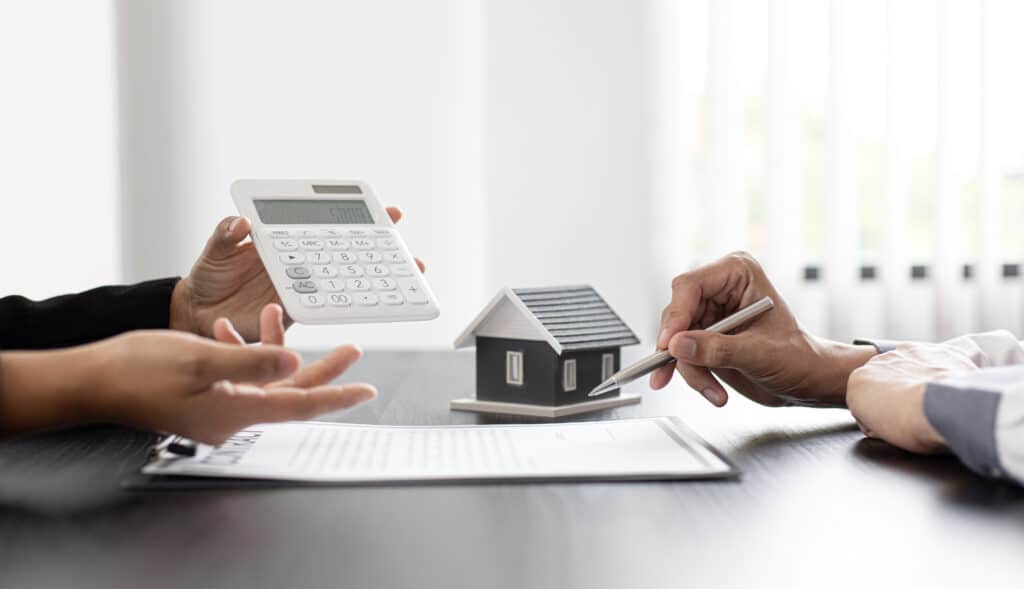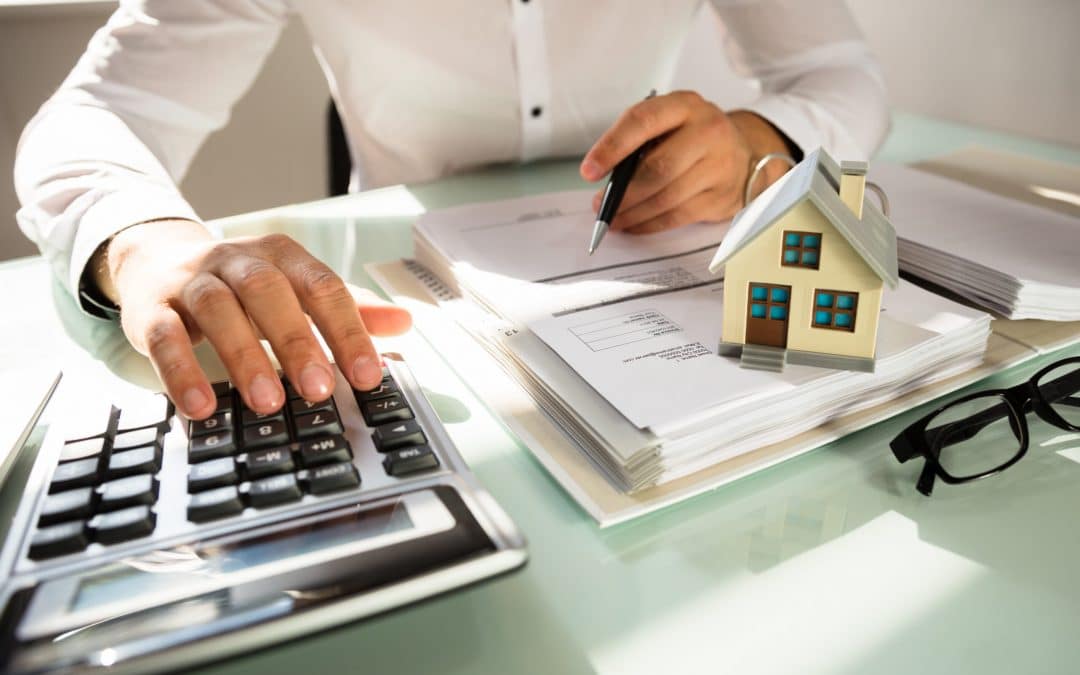The new Underused Housing Tax (UHT) is an annual 1% tax that may impact you if you own residential property in Canada.
Owners of such properties who are non-resident, non-Canadian, or in some cases even Canadian owners, may be required to pay this tax.
Normally, you must file your Underused Housing Tax (UHT) return and pay any amounts due
by April 30th of the following calendar year. However, for the 2022 filing, the CRA announced that so long as your UHT return is filed and paid by October 31, 2023 the late-filing penalties and interest will be waived.
This blog post only covers the national UHT. Some provinces and municipalities impose
similar vacancy taxes that have separate filing and tax requirements, you should review these rules if you own properties in affected areas.

Why Did the Canada Revenue Agency Extend the Deadline?
Because the Underused Housing Tax Act is new, Canada Revenue Agency acknowledged that
there may be some challenges for affected owners, so wanted to provide extra time for compliance. The deadline for filing the UHT and paying it is still April 30, 2023, but no penalties or interest will be charged, as long as the CRA receives it before November 1, 2023.

What Is the Underused Housing Tax?
The UHT is a 1% tax, due annually, against the ownership of vacant and underused housing
in Canada.
As we all know, we have a shortage of housing in Canada. The tax was introduced as a
mechanism to minimize foreign investors from purchasing Canadian residential properties and not using them as intended. The tax is also intended to hopefully cool off the demand of foreign investment driving up the price of housing.
While the tax generally applies to non-resident or non-Canadian owners, there are cases where a Canadian individual or corporation may also have to pay the tax.
What is a Reportable Residential Property in Canada?
The Underused Housing Tax Act defines reportable residential properties as:
- Detached houses (with three or fewer dwelling units)
- Semi-detached house
- Rowhouse unit
- Residential condominium unit
- Any other similar properties

A dwelling unit is a single unit that has its own kitchen, bathroom, and living area.
If you own any of these types of properties, you may be required to file a return.
Other types of properties, like hotels, quadruplexes, high-rise buildings, or commercial cottages do not qualify as residential properties.
Do I need to file an Underused Housing Tax return?
If you own residential property in Canada, you will fall into 1 of 3 categories:
- “Excluded Owner” meaning you are exempt from filing the UHT return and exempt from paying the tax
- “Affected Owner” who is required to file the UHT return but does not have to pay the tax
- “Affected Owner” who is required to file the UHT return and is required to pay the tax
Generally, individual Canadian residents and citizens are excluded owners and do not have to file a return, or pay the tax. However, there are cases that we will see below where you are required to file.
If you own property indirectly, via a corporation or trust, you are an affected owner and are required to file the return.
Individuals who are non-residents or non-citizens of Canada and own property are affected owners and are required to file the UHT return.
Affected owners are required to file a UHT return for each property that they own.
If you are required to file, the registered owner(s) of the property must file the return by April 30th of each year. Where ownership is shared, each registered owner must file separate UHT returns for the property.
If you own multiple properties and are required to file, you and/or your spouse must jointly elect which property will be designated as your primary place of residence.
Here are the most common examples of where you are required to file the UHT return:
Private Corporations Owning Residential Property
If you own residential property inside a Canadian-Controlled Private Corporation (CCPC), you are an affected owner and are required to file the UHT return annually.
However, if the corporation is owned 90% or more (by votes and value) by Canadian residents or citizens, then the corporation is considered a specified Canadian corporation and is exempt from paying
the tax.
If the corporation is owned 10% or more by a foreign individual(s) (by votes and value), you are required to pay the tax.

Owning Property in a Partnership
If you own a residential property with other people, special attention needs to be paid to determine if a partnership exists.
In Canada, a partnership generally exists between two or more people carrying on a business, with or without a written agreement, to make a profit.
If you own property as a partner of a specified Canadian partnership, you are an excluded owner and are not required to file the UHT return annually.
A specified Canadian partnership is a partnership whose partners are all, as of December 31st of each year, any of the following:
- Are excluded owners
- Canadian citizens or residents
- Specified Canadian corporations
If the partnership is not a specified Canadian partnership, then you are an affected owner and required to file the UHT return annually. You may or may not have to pay the tax, depending on use of the
property.
Trusts Holdings Residential Property
If you own residential property inside a trust, the trustee(s) are affected owners and are required to file the UHT return annually.
If all the beneficiary(s) trust are Canadian residents or citizens, then the trust is exempt and the trustees are not required to pay the tax.
If the trust has any foreign individual(s) as beneficiaries, who are not Canadian residents or citizens, then the trust is not exempt and the trustees are required to pay the tax.
In a bear trust scenario, the legal owner is the one filing the return, not the beneficial owner.

Do I Need to Pay the Underused Housing Tax?
Above, we ran through various scenarios where you are required to file the UHT return and may have to pay the tax.
If you are an affected owner and qualify for any of the following exemptions, you are not required to pay the tax. These exemptions also apply to non-residents and non-citizens of Canada.
If you do not qualify for any of the following exemptions, you are required to pay the tax:
Primary Place of Residence
The property is exempt from tax if it is the primary place of residence of:
- You and/or your spouse (including common-law partner); or
- Your child and/or your spouse’s child who is a student and occupies the property in the year for study at a Canadian educational institution
Qualifying Occupant
The property is exempt from tax if the occupant is:
- Arm’s length individual with a written lease; or
- A non arm’s length individual with a written lease, who pays fair rent; or
- You or your spouse who has a valid Canadian work permit and are living in the property; and
- Satisfy qualifying occupancy of at least 180 days in the year
An exemption may also be allowed if the property’s availability is limited for any of the following reasons:
- Limited seasonal access, not suitable residence year-round
- Disaster or hazardous condition for at least 60 consecutive days
- Under renovation, uninhabitable for at least 120 consecutive days
- Under construction, less than 90% completed
- In the year of acquisition, unless you owned the same property within the last 9 years

How is the Underused Housing Tax Calculated?
The 1% tax is applied based on the value of the residential property as of December 31st of the previous year.
There are two ways to determine the property value:
1) Taxable value, which is the greater of:
– tax value reported on the property tax assessment; and
– most recent sale price on or before December 31st of the calendar year; OR
2) Fair market value from a written appraisal report done by an accredited member of the Appraisal Institute of Canada (or comparable body). Note, you must file an election with CRA if you want to use this method.
How Do I file the UHT Return?
If you are filing the UHT return yourself, it can be filed electronically via one of the following ways:
- If the property is owned personally: via CRA My Account
- If the property is owned through a business: via CRA My Business Account
If your accountant is filing the return on your behalf, it can also be filed electronically through CRA Represent a client.
The return can also be filed by paper. Depending where the owner is located, the return should be sent either to the Winnipeg or Sudbury Tax Services Office.
Payment can also be made electronically.
What Happens if I File the UHT Return or Pay the Tax Late?
If the affected owner does not file a UHT return by the deadline, the penalty is equal to the greater of:
- $5,000 for individuals, or $10,000 otherwise; and
- The total of: 5% of the UHT tax payable OR 3% of the tax payable times the number of months after the due date that the balance is not paid

Conclusion
The UHT is a new 1% tax of the value of property that is typically owned by non-residents and non-Canadians who are not using the property as intended.
Even some Canadians are required to file the UHT return annually, even if they are exempt from paying the tax.
There are lots of rules and exemptions to follow, it is easy to confuse if you have to file or not, and if you have to pay the tax or not.
If you do have to file, registered owners must do so by April 30th or face penalties.
Your accountant can help you identify situations where you are subject to the UHT rules, and ensure you understand any implications.
If you have questions about your tax liabilities or are interested in strategies to reduce the tax you need to pay, Pharma Tax can help.
- With The New Capital Gains Tax Changes for 2024, What are the Best Places to Tax Shelter My Money? - November 1, 2024
- Business Overhead Insurance: What it is & Why You Need It - October 18, 2024
- How Long Do I Need to Keep Receipts? - October 5, 2024


